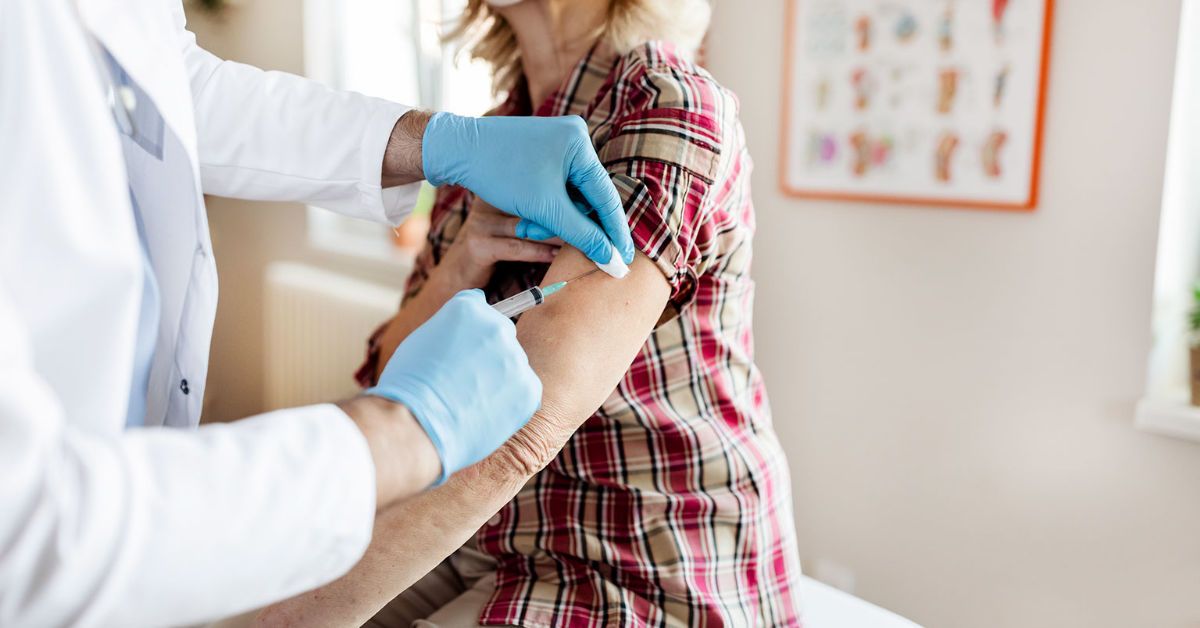Scotland’s Children and Young People’s Commissioner has welcomed the advice to offer the coronavirus vaccine to children.
UK health secretary Sajid Javid said on Monday that all children aged 12 to 15 in England are to be offered a first dose of a Covid-19 vaccine.
The news comes after the four chief medical officers (CMOs) of the UK said that children aged 12 to 15 should be offered a dose of the Pfizer/BioNTech vaccine.
In response, Bruce Adamson said: “We welcome the advice to offer the vaccine to children between the age of 12 and 15.
“It is important to give them that choice.”
Mr Adamson said children of this age group have told him over the last few months that they are in favour of having the choice to be vaccinated.
He added: “That is not to say that all of them had made a decision about whether they would get a vaccine, but they wanted the option to be available to them.
“Of course, there have been some children who are concerned about vaccination, or who told me about parental concerns.
“It is important that there is no stigma attached to the choices that children make about vaccination.”
The CMOs’ decision takes into account the “extremely powerful” evidence on the impact of the pandemic on children’s education, as well as the risks to their mental health from missing school.
Mr Adamson added: “It is essential that this advice is communicated directly to 12 to 15 year olds in a child-friendly way so they can understand why they are now being offered the vaccine, and can have any questions they might have answered in a way they can understand.
“Children have the right to access appropriate information on decisions affecting them.
“Parents and carers will play an important role in supporting the decision-making around whether a child chooses to get vaccinated so it is important that they have all of the necessary information to support that choice.”
The Educational Institute of Scotland (EIS), the country’s largest teaching union, also welcomed the decision.
EIS general secretary Larry Flanagan said: “Offering the vaccine to young people in the 12 to 15 age group will make secondary schools safer by reducing the risk of the virus spreading through school communities and will help reduce the level of disruption to education.
“Whilst we know that young people are less likely to become hospitalised through Covid-19, offering the vaccine will offer important additional protection against the virus.”
Mr Flanagan added: “In the few short weeks since our schools returned after the summer, we have already seen significant outbreaks in some school communities.
“This has led to an increase in enforced absences from school, with record numbers of students and staff forced to stay at home due to coronavirus.
“Rolling out the availability of the vaccines to a wider group of young people will reduce the risk of further outbreaks linked to schools and help ensure that education provision can continue on as normal a basis as possible.”
Speaking about the decision, Javid said the NHS in England would now begin rolling out the vaccine with the same urgency that has characterised the rest of the programme.
“I have accepted the recommendation from the chief medical officers to expand vaccination to those aged 12 to 15 – protecting young people from catching Covid-19, reducing transmission in schools and keeping pupils in the classroom,” he said.
“Our outstanding NHS stands ready to move forward with rolling out the vaccine to this group with the same sense of urgency we’ve had at every point in our vaccination programme.”
The Public Health England (PHE) leaflet on vaccines for eligible children and young people states: “The NHS is offering Covid-19 vaccination to children and young people.
“This includes those aged 12 to 17 years at increased risk from infection who will need two doses of the vaccine eight weeks apart.
“All other young people aged 12 to 17 years will be offered a first dose of vaccine. The timing of a second dose for these 12 to 17 year olds will be confirmed later.”
The document goes on to suggest that parental consent is not necessary, but children are encouraged to discuss the vaccine with their carers.
If approved throughout the UK, three million British children could be eligible for the jab, with vaccinations expected to be given through schools.
The decision comes despite the Joint Committee on Vaccination and Immunisation (JCVI) deciding not to recommend mass vaccination of 12 to 15-year-olds.
The JCVI said Covid-19 presents a very low risk for healthy children and vaccination would only offer a marginal benefit.
But they suggested that the wider issues, such as education, should be taken into consideration and examined by CMOs.
At a Downing Street press conference, Professor Wei Shen Lim, from the JCVI, said there was “no conflict” between the advice provided by the JCVI and that from the CMOs, adding that the JCVI had looked at jabs from a health perspective.
Follow STV News on WhatsApp
Scan the QR code on your mobile device for all the latest news from around the country


 iStock
iStock
























